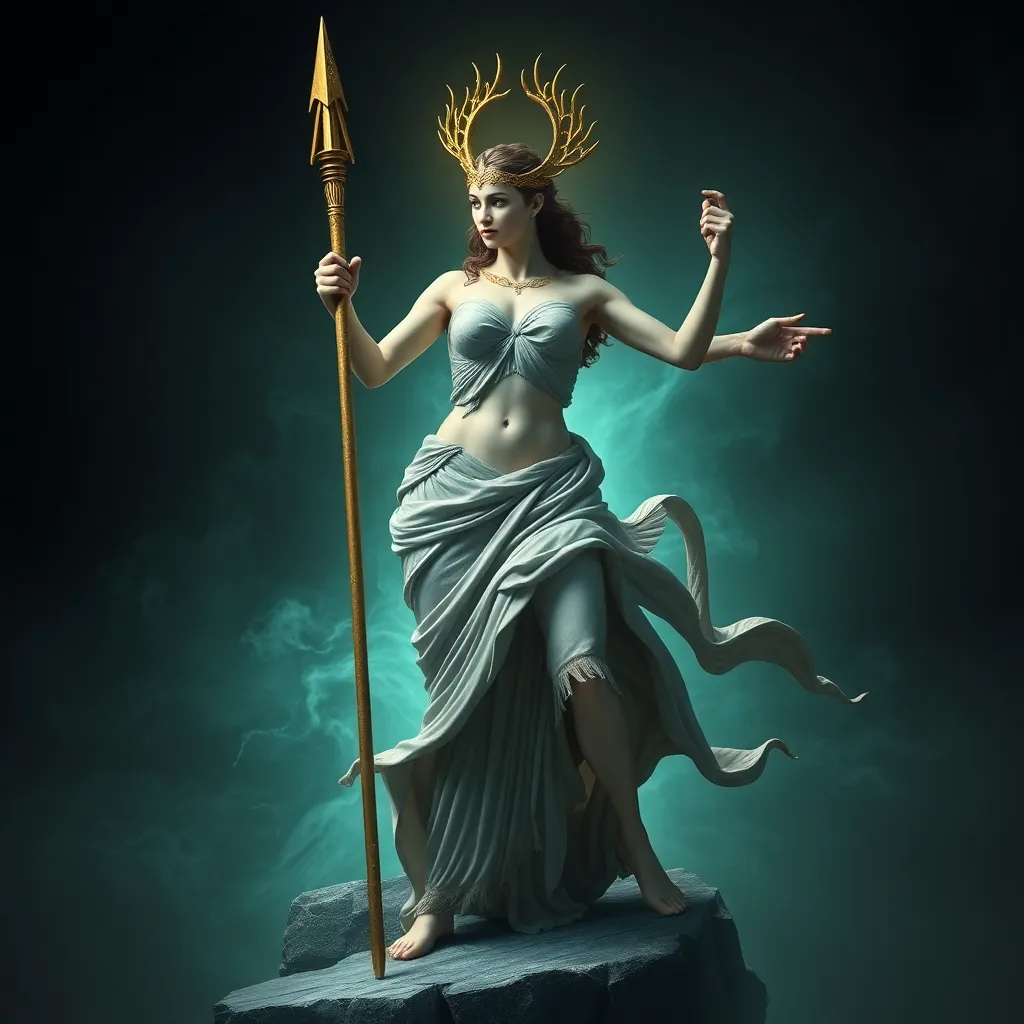Artemis and the Concept of Female Power in Ancient Greece
I. Introduction
Artemis, the daughter of Zeus and Leto, is one of the most revered goddesses in Greek mythology. Known primarily as the goddess of the hunt, wilderness, and childbirth, she embodies strength, independence, and femininity. Her character offers a unique perspective on female power in ancient Greek society, a culture that often marginalized women’s roles. This article aims to explore the intersection of Artemis and female empowerment, illustrating how her mythological narrative contributes to our understanding of women’s status in historical contexts and their ongoing relevance today.
II. The Mythological Origins of Artemis
Artemis was born on the island of Delos, alongside her twin brother Apollo. Her origins are significant; as the daughter of the king of the gods, she was endowed with extraordinary powers and responsibilities.
As the goddess of the hunt, Artemis is often depicted with a bow and arrows, symbolizing her prowess and independence. Additionally, she holds dominion over the wilderness, representing the untamed aspects of nature. Her role as a protector of childbirth further establishes her as a multifaceted deity, embodying both the fierce and nurturing aspects of femininity.
In ancient texts, Artemis is associated with various symbols, including:
- The crescent moon, representing her connection to nature and femininity.
- The deer, symbolizing grace and agility.
- The bear, which reflects her strength and wildness.
III. Artemis as a Symbol of Independence
Artemis stands as a representation of virginity and autonomy, rejecting the traditional roles that women were expected to fulfill in ancient Greece. Unlike many female figures in mythology who are defined by their relationships with men, Artemis is fiercely independent and self-sufficient.
This independence sets her apart from the conventional female archetypes of the time. While most women were expected to marry and bear children, Artemis chose a life free from male influence. Her refusal to conform to societal norms not only empowers her character but also resonates with the broader feminist ideals that challenge patriarchal structures.
IV. Artemis and the Female Community
Artemis played a crucial role in fostering female bonding and rituals. Many cults dedicated to Artemis were composed exclusively of women, who gathered to worship and celebrate their shared identity. The festivals in her honor, such as the Brauronia, involved rites of passage for young girls, emphasizing their transition into womanhood under Artemis’ protection.
The cult of Artemis was characterized by:
- Rituals that emphasized female solidarity and empowerment.
- Participation in communal activities that fostered a sense of belonging among women.
- Opportunities for women to express their individuality and strength.
These practices had a significant impact on women’s social status, allowing them to carve out spaces where they could exercise power and agency, albeit within the bounds of religious contexts.
V. Artistic Representations of Artemis
Artemis has been a captivating subject in various forms of art throughout history. Sculptures, pottery, and paintings depict her as a powerful figure, often emphasizing her beauty and strength. Artists portrayed her in various scenes, from hunting in the woods to protecting women in childbirth, each representation enhancing her status as a symbol of female power.
Some notable artistic interpretations include:
- Sculptures showcasing her athletic physique, reflecting her association with the hunt.
- Vases illustrating mythological scenes where Artemis intervenes on behalf of women.
- Paintings that capture her dual nature as both a nurturer and a warrior.
These artistic depictions not only represent Artemis but also contribute to shaping societal perceptions of women in ancient Greece, illustrating their strength and complexity.
VI. Comparisons with Other Female Deities
In examining Artemis, it is beneficial to compare her with other prominent female deities in Greek mythology, such as Athena, Demeter, and Hera. Each goddess symbolizes different aspects of female power:
- Athena: Represents wisdom, warfare, and strategy, often associated with male-dominated spheres.
- Demeter: Symbolizes fertility and agricultural abundance, embodying nurturing qualities.
- Hera: As the queen of the gods, she represents marriage and fidelity but is often portrayed in a jealous light.
Artemis complements and contrasts these figures by embodying independence and self-reliance, providing a unique narrative that highlights the diverse expressions of female power in mythology.
VII. The Legacy of Artemis in Modern Contexts
Today, Artemis is regarded as a symbol of feminism and female empowerment. Her legacy continues to inspire movements advocating for gender equality and women’s rights. Contemporary adaptations of Artemis in literature and media often portray her as a figure of strength and defiance against patriarchal norms.
Modern interpretations emphasize:
- The empowerment of women through independence and self-determination.
- The importance of female solidarity and community.
- The necessity of challenging traditional gender roles.
These discussions reinforce the relevance of Artemis in contemporary society, making her a powerful emblem in the ongoing struggle for gender equality.
VIII. Conclusion
In summary, Artemis embodies a significant aspect of female power in ancient Greece and continues to resonate in modern discussions about gender and equality. Her rejection of traditional roles, her nurturing yet fierce nature, and her role in fostering female community all contribute to her enduring legacy. As we reflect on Artemis’ significance, we recognize the importance of her character in shaping our understanding of female empowerment, both in the past and in contemporary society.
Ultimately, Artemis serves as a reminder of the strength and autonomy that women can embody, inspiring future generations to challenge societal norms and embrace their power.




